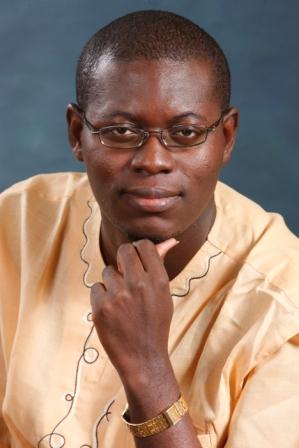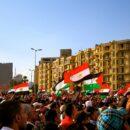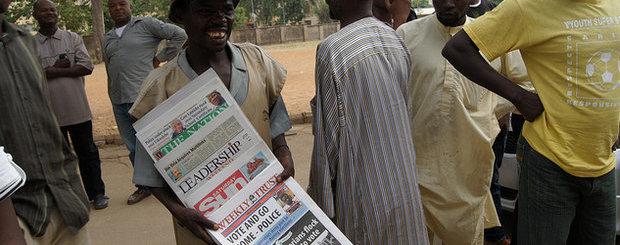Your Rendezvous with the African Middle Class – By Bright Simons

 If you are in business and Africa has been on your radar I am very sure it is partly because of boiling enthusiasm about the “African Middle Class” and how they are dying to buy your stuff.
If you are in business and Africa has been on your radar I am very sure it is partly because of boiling enthusiasm about the “African Middle Class” and how they are dying to buy your stuff.
This being business, and numbers being supreme, you’ve probably been keeping a keen eye on the growth in population of these middle-class folks, as reported in the quality press day in and day out.
You of course cannot help but also notice that the numbers game can get complicated pretty quickly, especially as no one seems to have done any substantial work on the social characteristics of this oft-hailed Middle Class. In place of such in-depth research we have the all-powerful notion of the “all-purpose middle-class African consumer (AMAC)” that behaves somewhat homogenously regardless of which country they are in in Africa, and what their backgrounds are.
The most popular view, supported by the likes of the New York Times and the World Bank, all powerful influencers of how the world thinks about Africa, puts the number of AMACs at more than 300 million, a diverse basket that includes all sorts: cattle-ranchers, road-side food vendors, taxi drivers, railway pensioners etc.
But this view has its critics, and though they are not as often heard, they shout when they get the opportunity, saying things like: only 5% of African consumers qualify for the “˜middle-class’ tag. If that position was valid, it would mean the AMAC class has suddenly shrunk from 300 million-plus all the way down to about 40 million or 50 million people (bearing in mind that even the exact population in Africa is debatable due to weak census data in many African countries).
But that is not even the most disconcerting view. Someone has actually said that there is basically no middle class consumer segment worthy of any serious analysis in Africa at all. Mind you, he is not just some party-pooper who just walked in from the street; he is a serious finance professional who only happens to hold the view that Africa has only two super-classes: the uber-rich and a large sprawl of poor people who nevertheless are inclined towards consumption (perhaps in just the same way that Asians are seen as inclined towards saving). You can of course choose to interpret that view to mean either that the celebrated AMACs are just poor people who have developed a habit of living above their means or that they are low-income earners with rapidly rising wages. But however you choose to spin it, the fact remains that your target consumer base has now shrunk to zero. From 300 million to zero, now that’s something.
In between these extremes are various moderates.
Another widely quoted economics commentator for a big global bank with a huge presence of Africa has pitched another camp in the debate: there are 120 million AMACs.
The OECD, the so-called Paris Club of rich nations, will only settle for a quarter of this compromise number, but top global consultancies Deloitte and McKinsey keep pulling in the opposite direction, which is that the number can’t be anything but double the 120 million figure, at least.
And what about those with some “˜skin in the game’? Actual investors in the trenches struggling to raise capital for the kind of mega-projects that get press attention nowadays? Renaissance Capital seems happy to stay close to the “˜120 million AMACs’ proponents.
A nice spectrum we have here then: from zero to 300 million and everything in-between.
Except it doesn’t help you very much in the numbers spin. So what if we drop the numbers game altogether and abandon this notion of some generic middle class rising like dough from the yeast of consumerism?
What if we unpacked the AMAC concept itself?
For a start, Africa’s middle-class is exceptionally heterogeneous. It is that fact rather than the sheer number of middle class consumers or even the pace of growth in these numbers that can have the strongest effect on the economic role and business significance of Africa’s middle class.
The African Development Bank (AfDB), for instance, has fixed the range of income for middle class status in Africa between $2 and $20. For someone who lives in Luanda, Angola, a can of coke will require 3 days’ wages if he earns close to the lower limit of this range. For someone who earns at the higher bound of this income range ($20) and lives in Lagos, a day’s wage may be sufficient to grab a burger at a western-style chain. This complicates things for the analyst relying on income assessment to decipher what are complex sociological issues regarding “˜aspiration’, and economic issues relating to “˜purchasing power’, and how these differ from country to country in Africa and make a simple enumeration of the Middle Class technically problematic.
But there is more to be said about the “˜income’ matter. Across Africa, incomes are rising fastest among those engaged in brokering trade in goods and services across fragmented markets, using slowly improving but still patchy infrastructure. They leverage the very inefficiencies others complain about and information asymmetries that ward off foreign investors to sustain high margins.
These brokers bridge an internationally efficient production system in Asia, with local, less efficient, markets. These are the same folks who secure mining concessions and rent them out to the Chinese, thus linking cheap capital and labour from overseas with weak bureaucratic capacity to exploit natural resources. In sheer numbers these operators far dwarf the professionals and white-collar workers who, in other regions of the world, make up the bulk of the Middle Class. This is a reality easily borne out by economic statistics. According to the AfDB, the informal sector constitutes 55% of sub-Saharan GDP. This is easily corroborated by in-country data that shows that in large countries like Ghana, Nigeria and Tanzania the figure is 60%. Even in historically over-regulated South Africa, the sector has doubled in size over the last decade or so, according to work by such experts as Friedrich Schneider. In South Africa, trade and social services account for 60% of total activity in the informal sector and certainly more in terms of monetary value. In the rest of the continent, informal trade can account for up to 75% of total employment in the whole economy, as shown in studies on informal trade in sub-Saharan Africa prepared for the Maputo Corridor Logistics Initiative, a Southern Africa regional platform. Given the importance of trading in the formal sector as well, the overall effect can only be preponderant.
The thing though is that these traders are rarely well-educated. They share few of the cultural traits seen elsewhere in the West and Asia as pre-requisite to a middle-class life. Many young and educated Africans, on the other hand, share few of the economic traits usually associated with middle-class status elsewhere. Lacking a sound income and strong social networks, and bereft of the professional grooming and mentorship opportunities available to true middle-class types, they have become a monument to an educational system increasingly at odds with the social and economic realities of the new Africa.
This amazing contradiction in most African societies, of an expanding educated underclass and an “˜uneducated’ rising economic class, sums up most of the reasons why the African economy is struggling to acquire the characteristics one would expect of an economy bursting with middle-class vibes. With the remarkable exception of South Africa, where unemployment among University graduates hovers around an astonishingly low of 5%, graduate joblessness is a trans-African tragedy.
Take Uganda, for instance, where an African Development Indicators report by the World Bank in 2012 put the unemployment rate among recent graduates at 83%. Or Cameroon, where a 2012 Economic Outlook report by the AfDB indicated an underemployment rate (earning less than the national minimal wage) of between 71% and 79% depending on whether the graduate was in an urban or rural region, respectively.
Simply put, even were the number of middle-class people expanding as dramatically as some observers claim, there is no guarantee that market and consumer behaviour would look anything like what emerged in other societies when their middle-class population begun to approach “˜critical mass’. In particular, the lack of “˜attitudinal solidarity’ among a middle-class population of such diverse economic characteristics, and the highly asynchronous relationship between the cultural and economic sub-categories of the same middle class, may seriously interfere with anticipated transitions in the political climate, the quality of the bureaucracy, the society’s appreciation of technical nuance, and the effectiveness of certain modes of psychological marketing.
With respect to the last point in the preceding paragraph, one may cite the oft-repeated anecdote of Unilever’s famous marketing effort for its OMO detergent brand in West Africa. In South Africa, the product had been branded as a “˜brightener’. The emphasis had been on “˜bright and sharp colours’. The Unilever marketers discovered quickly that in West Africa, the target consumer base behaved in unexpected ways. Middle Class people there tended to “˜revert’ to traditional African fabrics as their incomes grew. Completely opposite to the way the Middle Class in Southern Africa usually behaved. West African detergent buyers were thus more concerned about preserving the, usually, duskier and brooding hues of the fabric, instead of “˜brightening and sharpening’ the fabric’s tone. This turned out to be the critical marketing factor.
For you as a prospective investor, if dear reader happens to fall in that category, it is obvious then that qualitative factors should matter more than quantitative factoids in shaping your strategy in this regard. Because even were you to find consumers interested in your products, you may struggle to serve them because your assumptions about how cultural attitudes evolve with income, and about customer service skills in the local market, based perhaps on a notion of sophisticated consumers equal sophisticated workers, may turn up to be completely flawed. Your assumptions regarding how quickly you may be able to “˜educate’ your consumers to embrace certain attitudes, expectations, or user skills (for example using your web-based tool rather than coming over to your brick and mortar joint) may be far off the mark than your margin of error could ever have predicted.
The qualitative character of the middle class in your targeted African country has implications for your hiring and general human resource strategy, public relations, government relations, corporate responsibility and citizenship, reliance on local financial instruments, operational effectiveness, and the overall sustainability of your market advantages and position. You can take comfort in the fact that the quality not just the quantity of the African middle-class looks set to grow, as reforms begin to take root.
That is why it makes more sense for you to look out for the sociological foundation underlying the macro-economic factoids that catch your eye, and to concentrate your energies on the unique, contextual, situation of the middle classes in your chosen country of engagement in Africa than to turn yourself into an amateur census-taker.
Bright Simons is a Social Entrepreneur and Public Interest Researcher. He invented the mPedigree anti-fake drugs system (www.mPedigree.Net), and is a Fellow at IMANI, a think tank in Ghana.
[Disclaimer: A previous version of this article was published elsewhere.]






